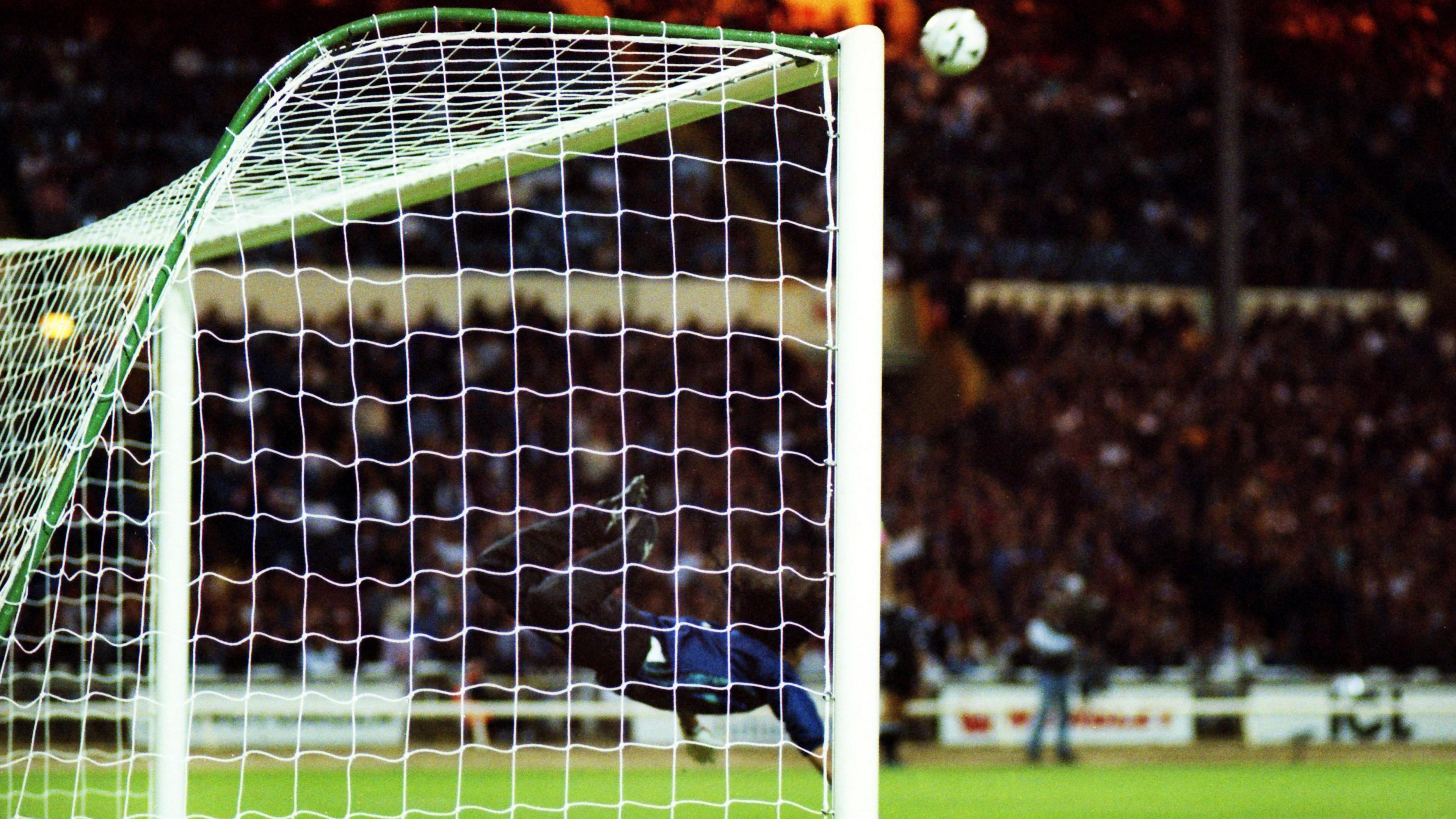This article commemorates the 30th anniversary of Rene Higuita’s famous scorpion kick. It revisits the iconic moment, tracing its origins to a TV advert and highlighting the widespread disbelief and admiration it generated. The piece also explores Higuita’s broader career, emphasizing his revolutionary goalkeeping style, his role in Atletico Nacional’s Copa Libertadores victory, and his controversial association with Pablo Escobar, cementing his status as a footballing iconoclast.
Thirty years ago, a moment of audacious brilliance etched itself into football folklore. Rene Higuita, the enigmatic Colombian goalkeeper, defied convention and physics with his now-iconic 'scorpion kick' at Wembley Stadium. It was September 6, 1995, in a friendly match against England, a night that would forever be remembered not for the scoreline, but for a single, unforgettable act of improvisation.
The genesis of the scorpion kick wasn't born on the hallowed turf of Wembley, but rather on a Colombian television set. Higuita, while filming an advertisement for a soda brand alongside children, witnessed a young boy bicycle-kick a football towards him. Instinctively, Higuita responded by flinging both legs behind his back, clearing the ball with his heels. From that moment, the seed of the scorpion kick was planted. He honed the move in training, turning it into his signature party trick.
When Jamie Redknapp's miscued effort floated harmlessly towards Higuita's goal, the stage was set. The keeper, already renowned for his unorthodox style of play, saw the opportunity and seized it. As the ball arced over his head, Higuita propelled himself forward, contorting his body and flicking both heels in perfect unison to divert the ball away from danger. The crowd erupted, and a legend was born.
Martin Tyler, commentating that night, initially believed the referee had blown his whistle, such was the outlandish nature of the save. "I was confused," Tyler recalled. "In real time, nobody would do that, why would they do it? It was like there was something mysterious going on. It was totally unexpected. He foiled Jamie Redknapp and he fooled the lot of us on the gantry!"
Bryan Robson, a member of the England coaching staff, was captured on camera laughing in disbelief, mirroring the reaction of the fans in attendance. Simon Pryde, a BBC Radio Newcastle host who was in the stadium that night, remembers the stunned silence followed by spontaneous laughter and applause. Even England defender Steve Howey, tasked with scouting Colombia's Faustino Asprilla, was taken aback by Higuita's audacity.
But Higuita was far more than just a showman. Nicknamed 'El Loco' (The Madman), he was a revolutionary goalkeeper who redefined the role. Scoring 43 career goals mostly from free-kicks and penalties, Higuita wasn't limited to his penalty area, often venturing far from his goal to act as a sweeper-keeper, tackling forwards, winning headers, and even dribbling past opponents.
His unconventional style and willingness to take risks made him a key figure for Atletico Nacional, leading them to their historic Copa Libertadores triumph in 1989. Jorge Campos, the legendary Mexican goalkeeper, hailed Higuita as a pioneer, an extra defender who initiated attacks. Higuita's influence was so profound that it is believed to have inspired FIFA's backpass rule, preventing goalkeepers from handling the ball after receiving a pass from a teammate.
Higuita's career was not without controversy. His association with drug lord Pablo Escobar led to imprisonment, sidelining him from the 1994 World Cup. Nevertheless, his legacy as a footballing maverick remains intact. Thirty years after that moment of magic at Wembley, Rene Higuita's scorpion kick continues to captivate and inspire, a testament to the power of individuality and the enduring appeal of the beautiful game.
Below is an image of the famous scorpion kick:
